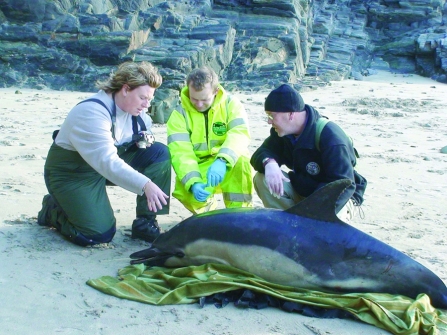So far 60% of the £16,000 Marine Strandings Appeal target has been met and although the Trust is extremely grateful to everyone who has contributed, they urgently need to raise more, in order to complete this important work. Without hard evidence, nothing can be done, except to keep counting the bodies, and these animals, says the Trust, deserve better.
Already funding is beginning to make a difference. Because of generous donations to the Appeal, work has begun to assess the strandings data from 2017. Together with both fisheries and other environmental information, the Trust can now start to answer questions as to why 2017 saw the worst year in 15 years for marine strandings along the Cornish coastline.

